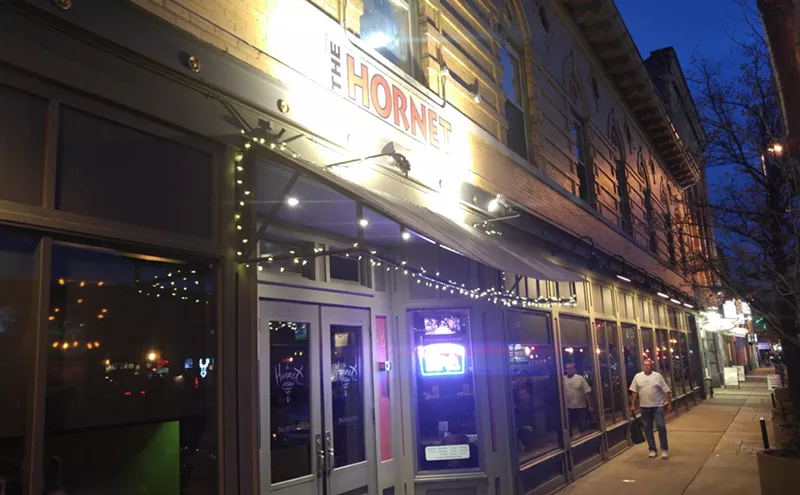After its Sundance premiere, Compliance might be infamous as the film that inspired a woman to cry out "Rape is not entertainment!" However, writer/director Craig Zobel is not Daniel Tosh. Judging from the film itself, which keeps its final sexual assault entirely off-screen, Zobel seems to agree with that heckler/critic. He has clearly learned a lot about unpleasure and anti-erotic uses of nudity from European arts-ploitation films, but the Ohio fast-food-joint setting and minimum-wage-slave characters could hardly be more all-American.
Zobel draws on Michael Haneke's films, especially their use of off-screen space, during Compliance's harrowing middle section. If he can't match the Austrian director's formal mastery, he thankfully lacks Haneke's combo of sadism and self-righteousness. Compliance's underlying humanism and political conscience lift it beyond being a macho endurance test.
Based on a true story, Compliance begins on a busy day in a fictional ChickWich restaurant. Sandra (Ann Dowd) gets a phone call from a man calling himself Officer Daniels (Pat Healy). The cop claims that a young employee, Becky (Dreama Walker), has been seen stealing money from a customer's purse. Sandra takes Becky into a back room and obeys the instructions from Officer Daniels: to take off all of Becky's clothes and search her for the stolen money. But no amount of strip-searching can satisfy him, and from there, his commands quickly grow extreme and silly.
On one level, it's ridiculous that someone would take the nudity-obsessed Officer Daniels for a real cop. His relish in degrading Becky is all too obvious. On the other, it's a little absurd that we have to take off our shoes to board an airplane. More than any other recent narrative film, Compliance allegorizes the loss of civil liberties and creeping authoritarianism — even the sexual sadism that popped up at Abu Ghraib — we have come to passively accept since 9/11.
Considering what happens in Compliance, Zobel is relatively sparing with naked flesh; it's a testament to his skill as a filmmaker that some critics have described the film as more explicit than it actually is. Zobel's images of female nudity reveal Becky's vulnerability rather than offer audience titillation, but it's crucial to his project that Walker is a young, attractive woman. If male spectators desire her, they come to feel complicit in Officer Daniels's funny games.
Compliance lets neither men nor women off the hook. Obviously, its narrative involves men raping Becky, directly and by proxy. But men are also the only characters who rebel against Officer Daniels, while Sandra greases the wheels of Becky's degradation. We'd all like to think we'd say no to tyranny; Compliance shows how hard it is to tell authority figures to fuck off. As critic Adam Nayman suggests, the reassuring note struck by its finale compromises the film's political meanings, though it also keeps Compliance from slipping into nihilism. Still, no happy ending can take back the chill of Pat Healy's Mister Rogers-gone-perv visage.








